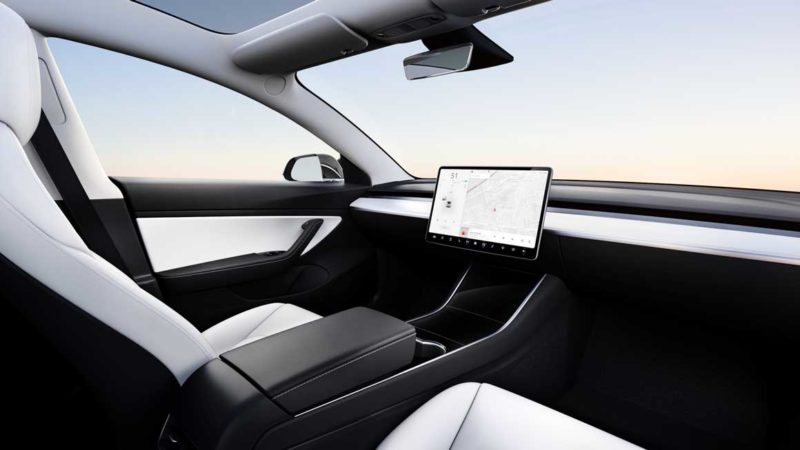Tesla battery team breaks one million mile barrier – and the implications are huge

It’s a bold plan, not least because Musk has said there will a million such robo-taxis on the road by 2020.
In April, Musk said that while the Model 3 is designed to last a million miles, its current batteries are not and significant improvements were needed to reduce battery wear and the consequent financial costs – particularly for an electric taxi that might drive hundreds of miles – or kilometres – a day.
A week later, at an invite-only autonomy day held by the Californian EV maker at Palo Alto in April, Musk said that Tesla had something in the pipeline that could achieve this milestone.
In a paper published on Friday in the Journal of Electrochemistry, a team that includes Canadian academic Jeff Danh from the University of Dalhousie, and who also leads Tesla’s battery research group, said it had singled out a type of battery cell that could handle the demanding conditions of long-term day-in, day-out, battery usage by taxis.
After three years of testing a range of conditions, including long-term, 100% discharging of power at 20, 40 and 55°C, long-term storage at the same temperatures, and testing how much power was created at 40°C using a variety of different electrolytes, the results found one particular cell that stood out.
“Of all the cells tested, the ones with the longest lifetime are the single crystal NMC532/AG cells with optimized electrolytes reported here,” the authors of the report wrote.
“We conclude that cells of this type should be able to power an electric vehicle for over 1.6 million kilometres (1 million miles) and last at least two decades in grid energy storage.”
They also determined that even with constant use at high temperatures, at least 1.2 million kilometres could be achieved.
“Even if the cells were continually at 40°C, 10 years of lifetime to 70% capacity and a total driven distance of 1,200,000 km is projected,” they wrote.
The implications for electric mobility is huge, and for Tesla in particular should Dahn to transfer the results of the research to Tesla’s own battery tech development.
Batteries that are able to withstand deep-cycling without significant loss of battery capacity for a sustained number of cycles (Dahn’s team successfully test 3,700 cycles) could be utilised in a number of different ways, not only for Musk’s robo-taxi plan.
Electric buses, vehicle-to-grid energy interchange and long haul trucking are all industries that could benefit from this technology.
Tesla Semi, we’re looking at you.
Along with full self driving (FSD) price increases as pointed out by Musk in July, this will see the value of autonomous Tesla vehicles that can participate in a robo-taxi fleet also rise.
Tesla has not made an official statement about the new battery tech research paper, but it is understood that a full “Battery Day” will outline developments for the company in early 2020.

Bridie Schmidt is lead reporter for The Driven, sister site of Renew Economy. She specialises in writing about new technology, as well as using her technical skills in managing our websites.
No comments:
Post a Comment